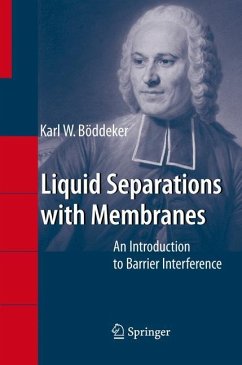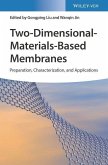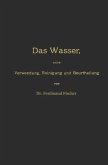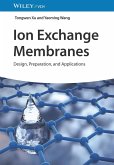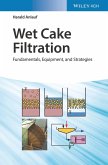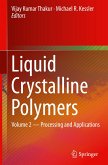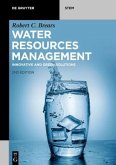On the level of a textbook a self-consistent approach to liquid separations with membranes is presented, contrasting equilibrium separations with the rate-controlling effects of barrier interference on mass transfer. As a corollary objective, an effort is made to observe context, factual and historical, when introducing concepts and applications of membrane separation science. Ordering principle is the formal structure of mass transfer across permeable barriers, being construed of a driving force (allocated to the condition of the mixtures to be separated) and a barrier permeability (holding the keys to membrane selectivity). The membranes, by this approach, appear by way of the mass transport requirements which they are to meet, or else by way of the separation effects which they inspire. Exploiting barrier interference is the challenge of membrane separation science and technology. This book is about the principles behind.
From the reviews:
"This work is ... a little gem. Böddeker (Technische Universität Hamburg, Germany) describes the physical principles involved in a number of membrane separation techniques including osmosis, reverse osmosis, ultrafiltration, and pervaporation. ... The appendixes are particularly helpful, providing useful reference tables and electron micrographs. ... this is an excellent book for advanced students and professionals interested in understanding more about membrane separations. Summing Up: Highly recommended. Upper-division undergraduates through professionals." (J. M. Tomich, CHOICE, Vol. 45 (11), July, 2008)
"This work is ... a little gem. Böddeker (Technische Universität Hamburg, Germany) describes the physical principles involved in a number of membrane separation techniques including osmosis, reverse osmosis, ultrafiltration, and pervaporation. ... The appendixes are particularly helpful, providing useful reference tables and electron micrographs. ... this is an excellent book for advanced students and professionals interested in understanding more about membrane separations. Summing Up: Highly recommended. Upper-division undergraduates through professionals." (J. M. Tomich, CHOICE, Vol. 45 (11), July, 2008)

